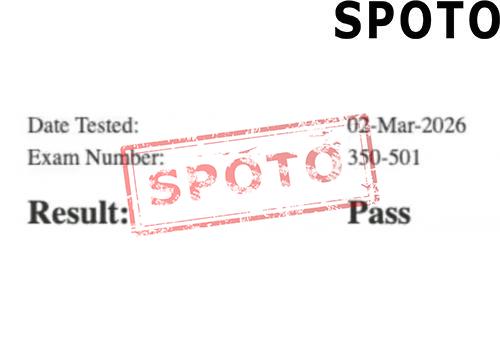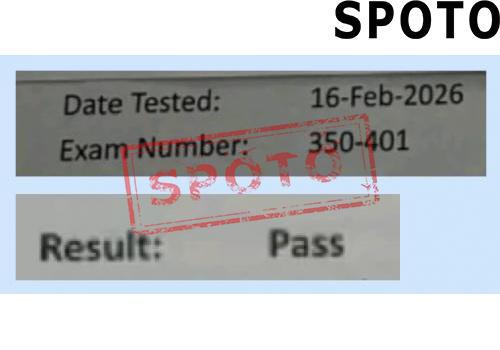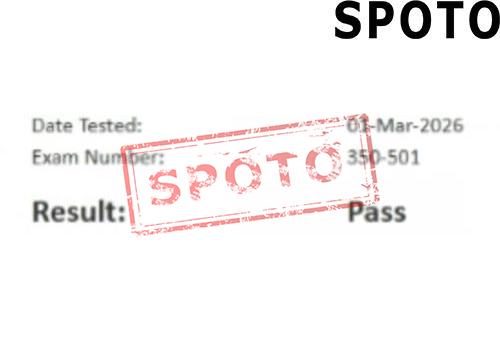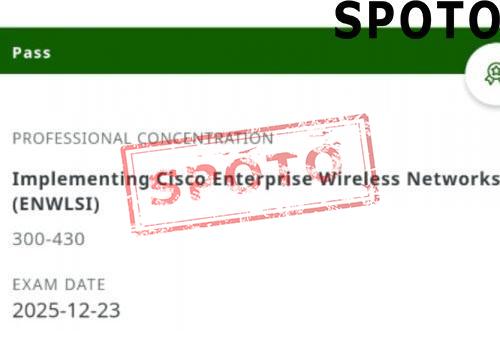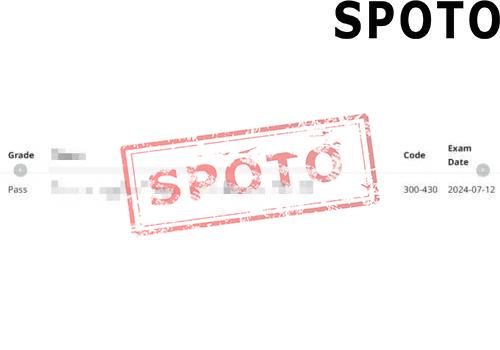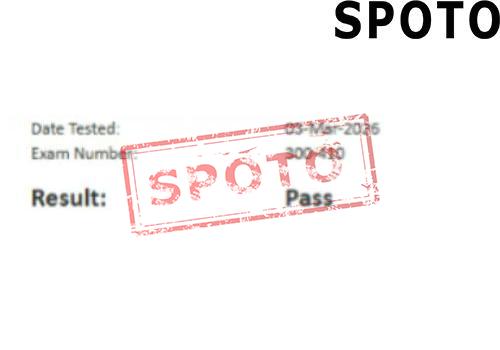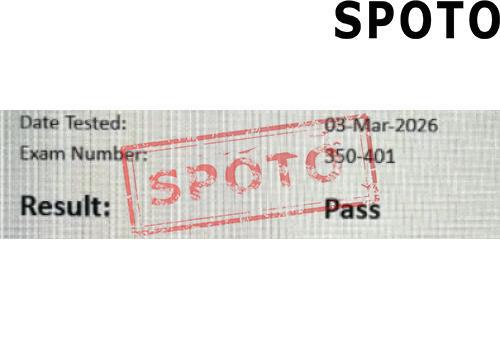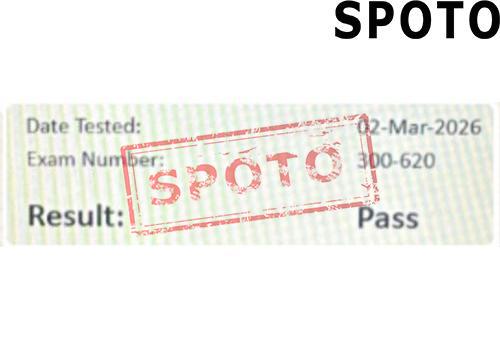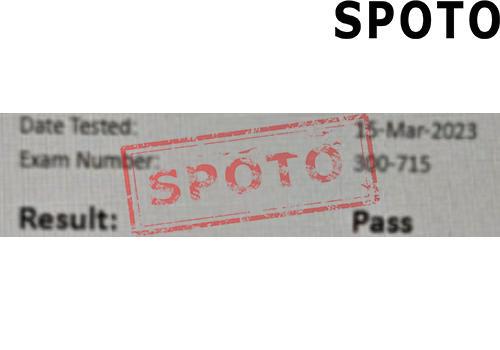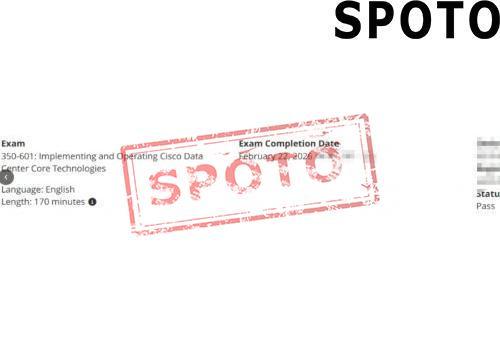
In the world of networking certifications, Cisco's certification pathway is well-structured, with each level building upon the previous one. Traditionally, candidates pursue the CCNA (Cisco Certified Network Associate) before moving on to CCNP (Cisco Certified Network Professional) certifications. However, since Cisco removed the CCNA as a prerequisite for CCNP certifications, many aspiring network professionals are left wondering whether they should skip CCNA and go straight for the CCNP Service Provider certification. This article explores the pros and cons of bypassing CCNA when aiming for CCNP Service Provider and whether it is a wise decision or a risky move.
Understanding CCNP Service Provider
The CCNP Service Provider certification is designed for professionals working in service provider environments. It focuses on designing, implementing, and troubleshooting service provider networks, covering key technologies such as MPLS, BGP, QoS, and segment routing. The certification is aimed at individuals working with large-scale networks, ISPs, and telecommunications companies.
To obtain the CCNP Service Provider certification, candidates must pass two exams: a core exam (SPCOR 350-501) and a concentration exam of their choice, such as advanced routing, VPN services, or automation in service provider environments. While CCNA is no longer a prerequisite, the knowledge it provides can still be crucial for success.
Advantages of Skipping CCNA
1. Saves Time and Money
One of the primary reasons candidates consider skipping CCNA is to save time and money. Preparing for and taking the CCNA exam requires significant effort, and some professionals feel that they can gain the necessary knowledge through self-study while focusing directly on CCNP Service Provider topics.
2. Prior Experience Might Make CCNA Redundant
If a candidate has substantial hands-on networking experience, particularly in service provider environments, the foundational knowledge covered in CCNA may already be well understood. For professionals with industry experience, studying directly for CCNP Service Provider can be a more efficient approach.
3. CCNP Covers Core Concepts in More Depth
The CCNP Service Provider certification includes fundamental networking concepts, albeit at a more advanced level. Candidates who are comfortable with networking basics may find that they can grasp these concepts without needing to go through CCNA first.
Risks of Skipping CCNA
1. Lack of Fundamental Knowledge
The CCNA certification provides essential networking fundamentals that serve as the foundation for more advanced topics covered in CCNP. Skipping CCNA may leave knowledge gaps, particularly for those who are new to networking or lack hands-on experience.
2. Higher Learning Curve
CCNP-level topics assume a strong grasp of networking fundamentals. Without the structured learning path of CCNA, some candidates may find themselves struggling with complex topics such as MPLS, QoS, and segment routing. This can lead to longer study times and potential failure in CCNP exams.
3. Reduced Confidence in Networking Skills
For individuals new to networking, CCNA provides a confidence boost by reinforcing networking concepts through structured learning and practical exercises. Skipping CCNA may result in a weaker foundation, making CCNP-level troubleshooting and design concepts more challenging to understand.
4. Missed Hands-on Experience
CCNA includes labs and practical exercises that help candidates develop hands-on networking skills. While CCNP Service Provider focuses on advanced configurations and troubleshooting, a lack of foundational lab experience can be a significant disadvantage.
Who Should Consider Skipping CCNA?
While skipping CCNA is not advisable for everyone, certain candidates may be well-suited to this approach:
- Experienced Networking Professionals: Those with several years of experience in networking, particularly in a service provider environment, may already have the necessary foundational knowledge.
- Candidates with Equivalent Knowledge: Individuals who have completed other networking certifications or coursework equivalent to CCNA may not need to go through CCNA again.
- Fast Learners and Self-Starters: Those who are comfortable with self-study and can quickly grasp networking concepts without structured guidance may successfully jump straight to CCNP Service Provider.
Who Should Not Skip CCNA?
- Beginners in Networking: If you are new to networking, CCNA is crucial for building a strong foundation.
- Candidates Without Hands-on Experience: Practical networking skills developed in CCNA labs are invaluable and can make a significant difference in CCNP-level troubleshooting.
- Individuals Who Struggle with Independent Learning: CCNP Service Provider topics can be overwhelming without prior networking knowledge, so structured learning in CCNA can be beneficial.
Alternative Approaches
For those unsure whether to skip CCNA, there are alternative approaches:
- Self-Study CCNA Topics Without Taking the Exam: Some candidates may choose to study CCNA-level materials without sitting for the certification exam. This ensures they have the foundational knowledge before jumping into CCNP Service Provider.
- Take a CCNA Bootcamp or Online Course: Short, intensive courses covering CCNA concepts can help candidates quickly acquire the necessary knowledge without formally pursuing the certification.
- Gain Practical Experience Through Labs: Using tools like Cisco Packet Tracer or GNS3 to practice CCNA-level configurations can provide the hands-on experience needed for CCNP.
Conclusion: A Good Idea or a Risk?
Skipping CCNA for CCNP Service Provider can be a viable option for experienced professionals who already possess the necessary networking fundamentals. However, for beginners or those lacking hands-on experience, skipping CCNA can lead to significant challenges when tackling CCNP-level topics. While Cisco no longer requires CCNA as a prerequisite, it remains a valuable certification for building a strong networking foundation.
Ultimately, the decision should be based on an individual's background, experience, and learning style. If in doubt, gaining at least a foundational understanding of CCNA topics before attempting CCNP Service Provider is the safest approach. Investing time in fundamentals can pay off in the long run, ensuring a smoother transition to more advanced networking concepts.
